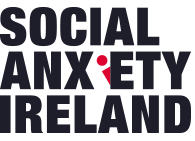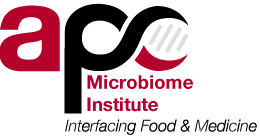 https://socialanxietyireland.com/wp-content/uploads/2018/09/I-know-what-i-want-to-say-but.jpg
577
471
Odhran
https://socialanxietyireland.com/wp-content/uploads/2018/03/sai.png
Odhran2018-09-25 15:57:552018-10-05 20:36:00What I Want To Say.
https://socialanxietyireland.com/wp-content/uploads/2018/09/I-know-what-i-want-to-say-but.jpg
577
471
Odhran
https://socialanxietyireland.com/wp-content/uploads/2018/03/sai.png
Odhran2018-09-25 15:57:552018-10-05 20:36:00What I Want To Say.affecting approximately 13.7% of Irish adults at any one point in time.
Social Anxiety Ireland
Website Privacy Statement (January 2014)
Introduction
Social Anxiety Ireland takes your privacy seriously. We want you to feel safe while using our website. We have endeavoured to ensure that our website is fully compliant with the Data Protection Acts 1988 & 2005.
This privacy statement relates to our practices in connection with this website only. The purpose of this Privacy Statement is to outline how we deal with any personal data you provide to us while visiting our website. We are not responsible for the content or privacy practices of other websites. Any external links to other websites are clearly identifiable as such.
If you do not agree with this privacy policy, please do not use this website. By using this website you agree to accept this privacy policy. Social Anxiety Ireland may change its privacy policy in the future without notifying existing users. It is users’ responsibility to check the details of Social Anxiety privacy policy on an ongoing basis.
Information collected by Social Anxiety Ireland.
Non-personal
Social Anxiety Ireland will collect no personally identifying information about you when you visit this website unless you choose to provide that information to us. The information we collect depends on what you do when visiting the website. Like most websites, Social Anxiety Ireland will gather general, non-personal information on our website visitors for statistical purposes. If you visit the website to browse or read our materials we automatically collect and store the following information about you:
- the IP address from which you access the website (an IP address is the number automatically assigned to your computer when you are surfing the web); where clipped or anonymised.
- the top-level domain name used (for example .ie, .com, .org, .net);
- the type of browser and operating system used to access the website;
- the date and time of your access to the website;
- the pages you visit; and
- the previous website address from which you reached the website, including any search terms used.
We use this information to help us make the website more useful to visitors, to learn about the number of visitors to the website and the type of technology which our visitors use. We do not track or record information about individuals on their visits. We may compile and report aggregate statistics about our visitors in terms of numbers, traffic patterns and related site information. Any such statistics will not include any personally identifying information.
Personal
Application for group treatment
If you decided to make an application to our Social Anxiety Ireland group treatment programme it is clear from the ‘group registry’ page what personal information you are submitting. This information can only collected by us if you voluntarily submit it to us and includes:
- Your full name and address
- Your date of birth
- Contact telephone number – ideally a mobile number
- A brief account of what has led you to believe that you are experiencing Social Anxiety
- A brief account of the impact that Social Anxiety is having on your day-to-day functioning
- Potentially, your score on the Liebowitz Social Anxiety Test.
- Email address
- IP address (where it has not been clipped or anonymised).
When you submit information to us we utilize info.socialanxietyireland@gmail.com email services and your email address is collected so that we can respond to your email. This personal information we request is used as a brief preliminary assessment of your suitability for our group treatment programme. We consider the protection of any information you send to us to be of the utmost importance and endeavour to keep it safe and secure. We review our security measures on a regular basis.
If you email us to make a general enquiry about social anxiety you email address will be deleted from our systems as soon as this enquiry is completed.
We also offer you the option of receiving our newsletter and other mailings that we think might be pertinent to individuals struggling with social anxiety. Moreover, in our endeavour to advance our knowledge of social anxiety and best treatment options we also offer you the option of receiving invitations to engage in various research opportunities. If you do not wish to receive these communications please ensure you endorse the relevant options offer to you. You may also unsubscribe to these communications at any time.
Registration
If you register with our website in order to use our forum or blogs facilities, Social Anxiety Ireland retains the information you supply (username & email) to inform you of when we have edited or deleted a message posted by you. This is done in order to facilitate the moderation of our forum and blog content. Forum and blog content is moderated by Odhran Mc Carthy (Founder – Social Anxiety Ireland)
Cookies
Social Anxiety Ireland uses cookie technology, so a cookie may be placed in your computer browser. Cookies are small text files which provide us with information about how often someone visits the Website, and what they do during those visits. Cookies do not themselves contain any personally identifying information but if you provide information to us, it may be linked to the data stored in the cookie.
If you do not want your browser to accept cookies, you can turn off the cookie acceptance option in your browser settings. You can also delete cookie files from your computer at your discretion. Note that if you decline our cookies or ask for notification each time a cookie is being sent, this may affect your ease of use of this website.
Disclosure of information
Social Anxiety Ireland general policy is to never disclose or sell your personal information to a third party without your prior consent. However, personal data may be released to external sources (e.g., Gardai or Social Worker) only if absolutely necessary in order to comply with applicable laws, summonses, search warrants, court or regulatory orders, or other statutory requirements.
Storage of personal information
Social Anxiety Ireland will take every care to ensure that your personal information is stored in a secure manner once it reaches us. Personal data submitted to Social Anxiety Ireland is held on secure servers hosted by blacknight.ie. Nevertheless, please be aware no data transfer over the internet can ever be guaranteed to be 100% secure. However, we will take every reasonable step possible (including appropriate technical and organisational measures) to protect your information.
Right of Access
You may have the right, subject to certain exemptions, to obtain a copy of any personal data we hold about you and to correct any inaccuracies in such data. If you wish to avail of any of these rights (where applicable), please contact us at info@socialanxietyireland.com
Updating, Verifying and Deleting Personal Data.
You should inform us of any changes in your Personal Data, and in accordance with our obligations under the Data Protection Acts 1988 and 2005, we will update or delete your Personal Data accordingly.
2018 GDPR Updates | Data Protection Policy
Social Anxiety Ireland
Odhran McCarthy
Senior Clinical Psychologist
8 New Cabra Road
Phibsborough
Dublin 7
Ireland
Last updated 25.05.18
Definitions
Charity means Social Anxiety Ireland, a registered charity.
GDPR means the General Data Protection Regulation.
Register of Systems means a register of all systems or contexts in which personal data is processed by the Charity.
1. Data protection principles
The Charity is committed to processing data in accordance with its responsibilities under the GDPR.
Article 5 of the GDPR requires that personal data shall be:
a. processed lawfully, fairly and in a transparent manner in relation to individuals;
b. collected for specified, explicit and legitimate purposes and not further processed in a manner that is incompatible with those purposes; further processing for archiving purposes in the public interest, scientific or historical research purposes or statistical purposes shall not be considered to be incompatible with the initial purposes;
c. adequate, relevant and limited to what is necessary in relation to the purposes for which they are processed;
d. accurate and, where necessary, kept up to date; every reasonable step must be taken to ensure that personal data that are inaccurate, having regard to the purposes for which they are processed, are erased or rectified without delay;
e. kept in a form which permits identification of data subjects for no longer than is necessary for the purposes for which the personal data are processed; personal data may be stored for longer periods insofar as the personal data will be processed solely for archiving purposes in the public interest, scientific or historical research purposes or statistical purposes subject to implementation of the appropriate technical and organisational measures required by the GDPR in order to safeguard the rights and freedoms of individuals; and
f. processed in a manner that ensures appropriate security of the personal data, including protection against unauthorised or unlawful processing and against accidental loss, destruction or damage, using appropriate technical or organisational measures.”
2. General Provisions
a. This policy applies to all personal data processed by the Charity.
b. The Responsible Person shall take responsibility for the Charity’s ongoing compliance with this policy.
c. This policy shall be reviewed at least annually.
d. The Charity shall register with the Information Commissioner’s Office as an organisation that processes personal data.
3. Lawful, Fair and Transparent Processing
a. To ensure its processing of data is lawful, fair and transparent, the Charity shall maintain a Register of Systems.
b. The Register of Systems shall be reviewed at least annually.
c. Individuals have the right to access their personal data and any such requests made to the charity shall be dealt with in a timely manner.
4. Lawful Purposes
a. All data processed by the charity must be done on one of the following lawful bases: consent, contract, legal obligation, vital interests, public task or legitimate interests.
b. The Charity shall note the appropriate lawful basis in the Register of Systems.
c. Where consent is relied upon as a lawful basis for processing data, evidence of opt- in consent shall be kept with the personal data.
d. Where communications are sent to individuals based on their consent, the option for the individual to revoke their consent should be clearly available and systems should be in place to ensure such revocation is reflected accurately in the Charity’s systems.
5. Data Minimisation
a. The Charity shall ensure that personal data are adequate, relevant and limited to what is necessary in relation to the purposes for which they are processed.
b. [Group Application Registration, General Contacts, Blog Comments and forum posts]
6. Accuracy
a. The Charity shall take reasonable steps to ensure personal data is accurate.
b. Where necessary for the lawful basis on which data is processed, steps shall be put in place to ensure that personal data is kept up to date.
c. [Group Application Registration, General Contacts, Blog Comments and forum posts]
7. Archiving / removal
a. To ensure that personal data is kept for no longer than necessary, the Charity shall put in place an archiving policy for each area in which personal data is processed and review this process annually.
b. The archiving policy shall consider what data should/must be retained, for how long, and why.
8. Security
a. The Charity shall ensure that personal data is stored securely using modern software that is kept-up-to-date.
b. Access to personal data shall be limited to personnel who need access and appropriate security should be in place to avoid unauthorised sharing of information.
c. When personal data is deleted this should be done safely such that the data is irrecoverable.
d. Appropriate back-up and disaster recovery solutions shall be in place.
9. Breach
In the event of a breach of security leading to the accidental or unlawful destruction, loss, alteration, unauthorised disclosure of, or access to, personal data, the Charity shall promptly assess the risk to people’s rights and freedoms and if appropriate report this breach to dataprotection.ie. If you have any questions please contact us at info@socialanxietyireland.com
CBT Group Treatment
The programme, which largely adopts a cognitive
behavioural model, is conducted over fourteen weeks.
If you wish to apply for a place on our Social Anxiety
Programme please read and follow the instructions in
the section ‘Process of applying for a place in our
Social Anxiety Programme.’
We Need Your Help!
Donations
We’re 100% non-profit and rely on the good will of people like you to enable us to continue to provide this invaluable treatment for so many people throughout Ireland.
100% of your donation goes towards helping people with Social Anxiety Disorder.
Latest News & Events
With the support of people like you, we’ve been able to help thousands of people throughout Ireland. Keep up to date with all things SAI via our blog with weekly updates, news, service updates and helpful information.



